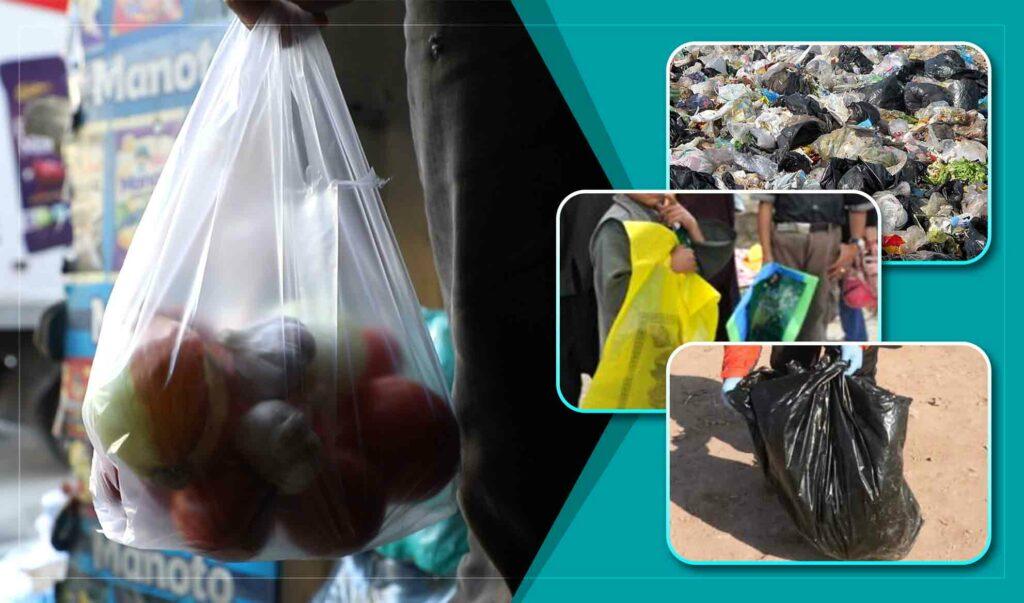KABUL (Pajhwok): Some doctors and environmental experts have urged families to use cloth and paper bags instead of plastic bags to prevent dangerous diseases and environmental pollution.
With the widespread use of plastic bags globally, environmental experts say that plastic, due to its long resistance to decomposition, is the worst and most dangerous waste for environmental pollution.
“Plastic remains in nature for hundreds of years and causes destruction of animals and plants.”
Najibullah Sadid, an environmental expert, told Pajhwok Afghan News that plastic could remain in the soil for up to 450 years without decomposing and even when it decomposes, its residues still cause harm.
He said plastic leads to destruction and drying of tree roots, the loss of crop yields, and the death of animals.
Sadid called on the interim government to increase the price of plastic bags to make them unaffordable, encouraging people to switch to cloth bags.
Sayed Mohammad Sulaimankhel, an environmental expert, said that plastic can cause soil, water, and air pollution, leading to the destruction of ecosystems.
He urged the government to raise awareness about the harmful effects of plastic bags and to control plastic production and consumption.
He also suggested promoting the use of cloth and paper bags and converting it into a culture.
Plastic bags cause cancer, high blood pressure and maternal problems
Doctors warn that using plastic bags to transfer hot food such as dry bread, cooked meat, popcorn, soup, chips, and other hot foods leads to various diseases.
Dr. Mohammad Ibrahim Dalili, a specialist in internal medicine, told Pajhwok, “There are toxic substances in plastic that, when exposed to hot food such as bread, soup, chips, popcorn, and other hot foods, release harmful chemicals which transfer to the person consuming them.
As a result, these toxins can cause heart diseases, digestive system cancer, high blood pressure, and reproductive problems in women.”
Dalili urged families to avoid using plastic bags and instead use cloth and paper bags to prevent both dangerous diseases and environmental pollution.
He also called on the government to enforce regulations that would require people to use cloth and paper bags.
Some shopkeepers say plastic bags are commonly used due to their cheap price and widespread availability.
Qadir, a shopkeeper in Kabul, says he uses around 150 to 200 plastic bags daily, as customers demand that even small items be packaged in plastic bags, leading to high consumption of plastic.
Mohammad Farid, a shopkeeper with over 30 years of experience, says he uses about 100 plastic bags a day and is forced to give plastic bags for everything he sells because there is no alternative, and people do not prefer cloth bags.
What should govt organs do to prevent use of plastic bags?
The National Environmental Protection Agency says that in recent years, it has banned the import of plastic bags and licensed plastic manufacturers, requiring them to gradually reduce their production.
Eng. Toofan Jibran, the head of pollution control at the National Environmental Protection Agency, added that the agency has also been educating the public at a smaller scale to promote environmental awareness and encourage citizens to limit their use of plastic bags.
On the other hand, Nematullah Barakzai, a representative of the Kabul Municipality, said that their office runs monthly programs to raise awareness about the benefits of using cloth bags and making it a part of the city’s culture.
the United Nations has previously stated that over 400 million tons of plastic are produced worldwide annually, half of which is designed for single-use only.
The United Nations added that after a single use, these plastics are either discarded or incinerated, polluting human health, biodiversity, and ecosystems from the highest mountains to the oceans.
sa/ma







GET IN TOUCH
NEWSLETTER
SUGGEST A STORY
PAJHWOK MOBILE APP